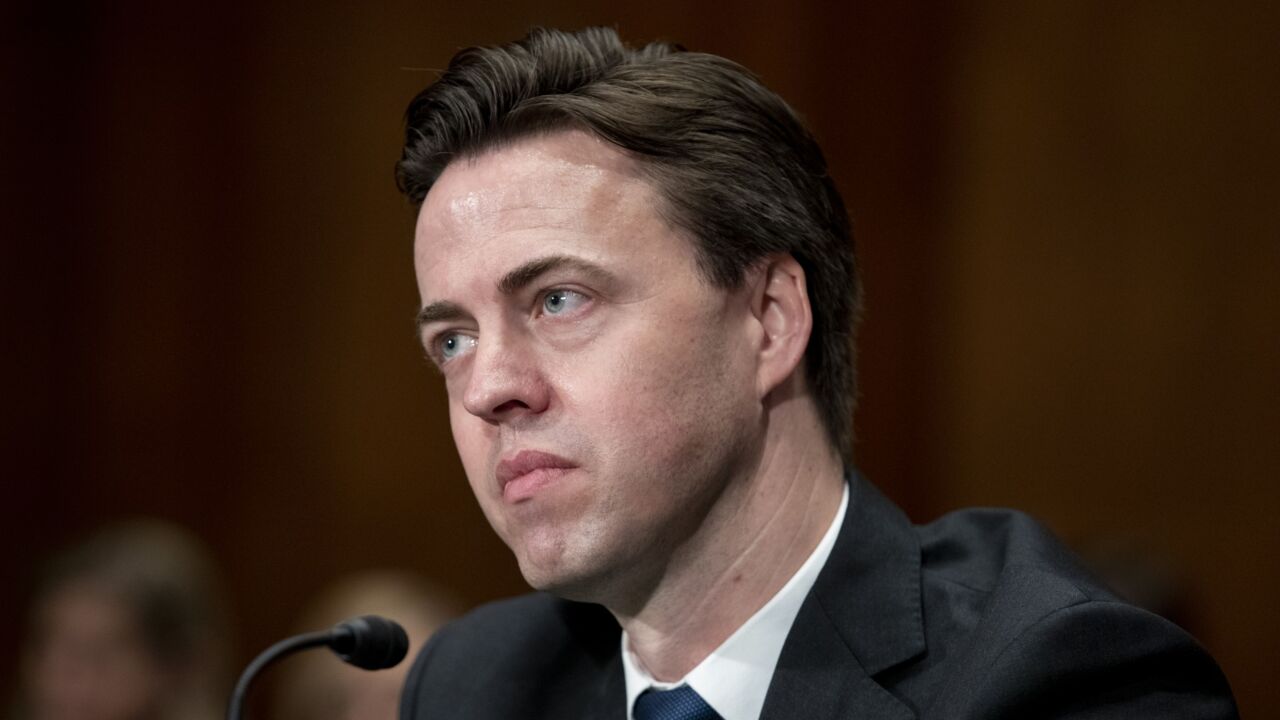
- Key Insight: The Fed's regulatory arm is stripping away components of its oversight apparatus, placing a greater emphasis on focusing on material financial risks.
- Expert Quote: "By anchoring our work in material financial risks, we strengthen the banking system's foundation while upholding transparency, accountability, and fairness." — Federal Reserve Vice Chair for Supervision Michelle Bowman
- What's at stake: Federal Reserve Vice Chair for Supervision Michelle Bowman has emphasized the need to reform the central bank's supervisory practices, but some critics have expressed concern that moving away from proactive oversight could allow risks to build up in the banking system.
The Federal Reserve's Division of Supervision and Regulation published a memo Tuesday outlining changes to how bank oversight will be carried out, revealing notable rollbacks in how banks will be examined.
The memo, sent internally Oct. 29 by Mary Aiken, acting director of the division, and Julie Williams, acting deputy director, told supervisory employees that they "should be focused on the responsibility of the board to promote the safe and sound operation of banks."
The guidance calls for stepping away from "excessive attention to processes, procedures and documentation that do not pose a material risk." The memo said such practices can be a "distraction" from the core mission of ensuring safety and soundness in the banking industry.
Changes to bank supervision have been expected since Michelle Bowman was confirmed as the central bank's top regulator in mid-June.
Going forward, Fed examiners should rely first on examinations and supervisory work conducted by state or federal banking supervisors for their depository institutions, the memo said. Supervisory staff can conduct their own examinations only if "it is impossible" to rely on examinations by local regulators, such as when there is not enough information shared.
Regarding bank ratings, Fed examiners are instructed to work jointly with state banking agencies and "rely to the extent possible on the state banking agency's examination work and conclusions in the alternating years." The memo says components of CAMELS and RFI/C ratings should not be treated as more important than others when determining a bank's overall rating.
Fed staff are "no longer permitted to communicate [Matters Requiring Attention, or MRAs] and [Matters Requiring Immediate Attention, or MRIAs] in a vague or overbroad language," and should "prioritize deficiencies that could have a material impact on a firm's financial condition, rather than focusing on procedural or documentational shortcomings."
The memo added that MRAs and MRIAs should be ended immediately once a bank fixes the underlying issues.
In a statement Tuesday, Bowman stressed that the supervisory approach does not narrow the central bank's focus, but rather "sharpens it."
"By anchoring our work in material financial risks, we strengthen the banking system's foundation while upholding transparency, accountability, and fairness," she said in a PR statement. "This is not about what we are leaving behind — it is about building a more effective supervisory framework that truly promotes safety and soundness across our financial system, which is the Federal Reserve's core supervisory responsibility."
In recent weeks, the Fed also
The unwinding and deprioritization of certain supervisory practices comes
Michael Barr, the former Fed vice chair for supervision, said during an appearance Tuesday that the reductions will "erode supervisors' ability to be forward-looking."
"Recently announced plans to reduce staffing in the board's Supervision and Regulation division by 30% by the end of 2026 will impair supervisors' ability to act with the speed, force and agility appropriate to the risks facing individual banks and the financial system," Barr said during a speech at American University's Kogod School of Business. "Such a drastically reduced staff will slow response time for the public and the banks themselves, limit supervisory findings and enforcement actions, and erode supervisors' ability to be forward-looking."
Since stepping down from his role as the Fed vice chair for supervision, Barr
In his speech Tuesday, he said it took nearly a decade to build up the capacity to understand the complexity of the banking system after the financial crisis.
"Now it is being gutted, practically overnight," Barr said.





